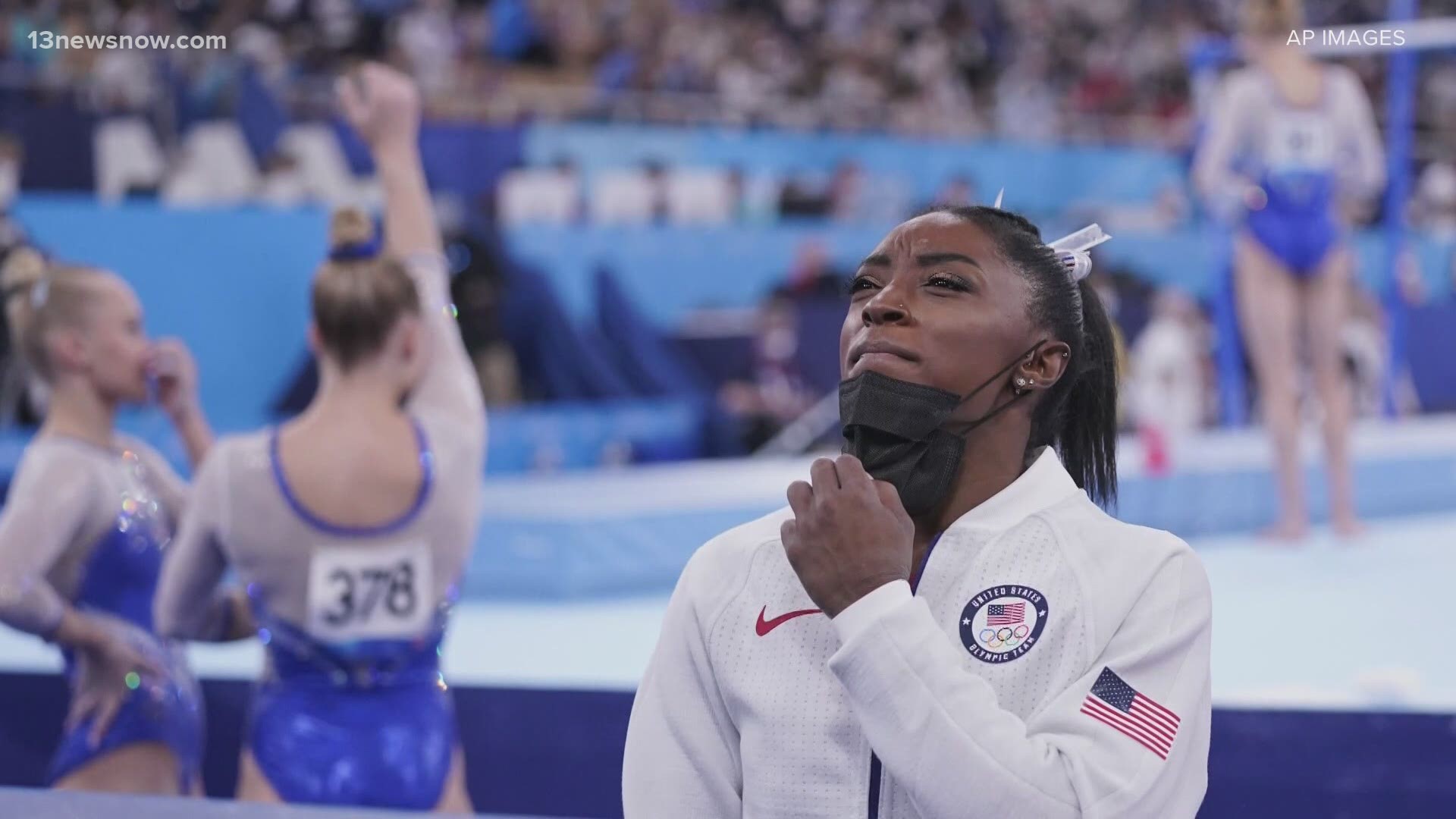NORFOLK, Va. — For years, the subject of mental health has been stigmatized.
Now, Simone Biles, often dubbed the GOAT of gymnastics, is putting a larger spotlight on the topic.
She withdrew from the individual all-around competition and the team competition on Tuesday. Instead, she was cheering on her teammates from the sidelines, as they took home the silver medal.
She says she needs to focus on her mental well-being.
"I tried to go out here and have fun, and warm up in the back went a little bit better, but once I came out here I was like, ‘No, mental is not there,'" she said during a Tuesday press conference. "Put mental health first. If you don’t, then you’re not going to enjoy yourself in the sport and you’re not going to succeed as much as you want to. So it’s okay to even sit out the big competitions to focus on yourself."
Shardé O’Rourke and Kurt Hooks are mental health specialists here in Hampton Roads. They both say they applaud Biles’ decision to take care of herself.
"That’s just incredibly courageous and I think that it affords an opportunity to normalize that more for people who are suffering in silence," says Hooks.
O'Rourke agrees.
"I understand there are times where we stick in there for the team and we suck it up, but there are moments when we have to choose ourselves," she says.
Although the conversation is becoming more common, O’Rourke says the idea of talking about mental health has been -- and still is -- stigmatized.
"I think it’s this idea socially that we have to be “strong,” but we don’t really know what strong looks like and then you just keep going and you never complain and you never ask for help and you never say, 'I’m not okay.'"
Hooks agrees and says it has to do with the perception of what others may think of you.
"I think it has to do a lot with labels and sort of assigning blame for individual inadequacy to be able to cope and perhaps some cultural dynamics, as well. This sort of, you just pick yourself up and suffer in silence and grit through it."
He says seeing famous athletes like Biles and other celebrities speak openly helps encourage people to open up and ask for help.
"It’s much easier when someone sets a precedent ahead of time and when you have more and more of those people coming forward then it feels less and less like you’re alone."
As for when it may be time to talk to a professional if you’re struggling, O’Rourke says taking care of yourself is a lot like taking care of a car.
"We make sure that it is running at its best all the time to avoid it stopping out of nowhere, getting caught on the freeway, where we’re like, now we’re in crisis," she says. "Don’t wait until you’re three months past the oil change where your car is about to blow up."
O’Rourke says there’s not a one size fits all description of mental health. Some people may be struggling more than others and she says that’s okay. No matter what end of the spectrum you’re on, there will always be people like her and Hooks ready to help.
As for Biles, USA Gymnastics said in a statement, "Simone will continue to be evaluated daily to determine whether or not to participate in next week’s individual event finals."

